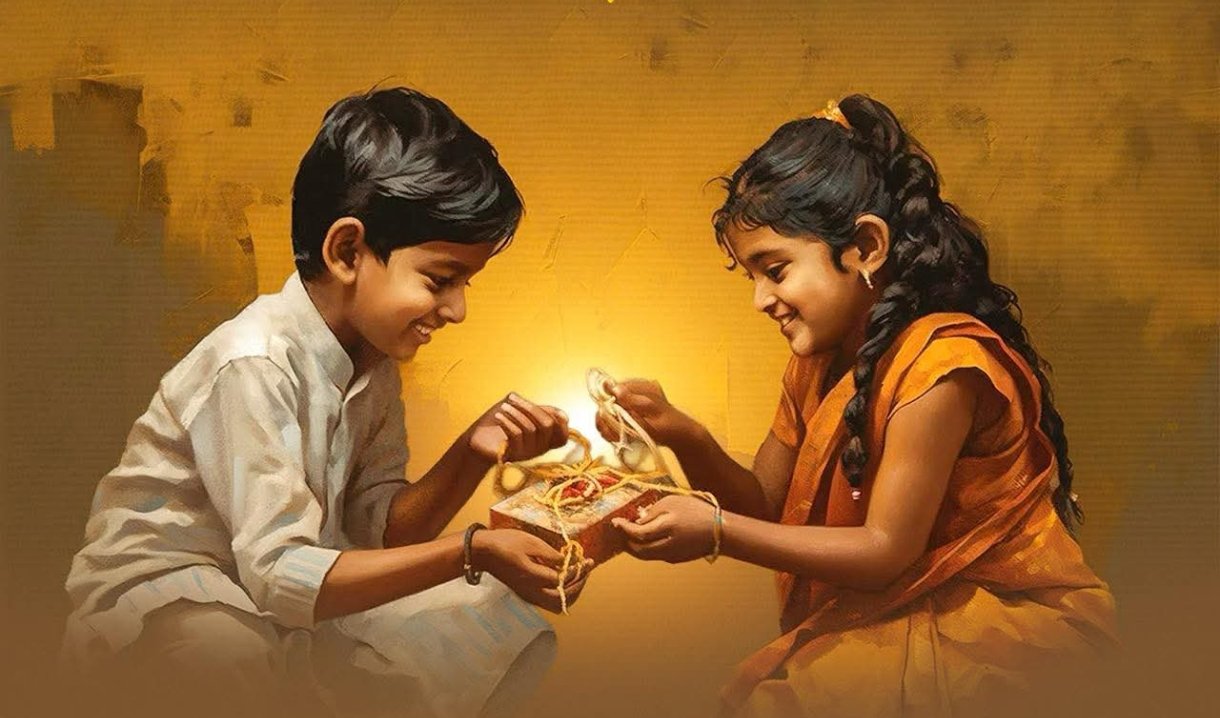Threads That Bind: India Holds Close on Raksha Bandhan as the Heart Longs for Healing
Sisters will tie silken threads around their brothers’ wrists in homes across India today. This is a simple ritual that has outlasted empires, migrations, and the clockwork march of modernity. In the hinterlands, in crowded chawls of Mumbai, and in the wide suburban kitchens of the Indian diaspora, the same scenes will play out: a rakhi, some no more than a humble braid of cotton, others glittering with beads will be tied with hands that once pulled a sibling’s hair, wiped his tears, or shared a stolen sweet.
 |
| Representational Image Source: Ajaz Ganderbali on X |
This morning in Patna’s KankarBagh, shopkeeper Pankaj Sharma is arranging boxes of sweets beside trays of rakhis imported from artisans in Rajasthan. “They’re more symbolic than I can explain,” he said, pausing to adjust the display. “Sometimes a sister will send one to a cousin, a friend, even a neighbour. It’s about feeling you belong to someone, that they belong to you.”
Belonging -- apnapan in Hindi -- is a word that sits at the heart of Indian culture. Across its sprawling geography and kaleidoscope of languages, food habits, and faiths, India’s social fabric is woven from intimate obligations: the neighbour who shows up unasked at a funeral, the distant aunt who sends pickles by train, the friend who insists you eat before you leave. Festivals like Raksha Bandhan take those threads and knot them, tight.
For India’s vast diaspora, the festival becomes a postal affair. Rakhis travel in padded envelopes from Edison to Dubai, from Singapore to Durban. Video calls have somehow replace the ritual’s physicality but the emotional cadence remains. “When I see my sister tying it on my son’s wrist over WhatsApp,” says Chicago-based IT consultant Rajeev, “it’s like we’re still home, even if we’re not. It also reminds us to come back home and visit everybody we love and miss, especially on occasions like these.”
But this year, as the nation wraps wrists in ribbons of affection, there is also a quieter undercurrent, a yearning for the tenderness that seems to have receded from India’s public conversation. In a landscape where debates run hot and fault lines deepen, the empathy embedded in traditions like Raksha Bandhan feels almost radical. The idea that one owes protection and kindness -- without transaction, without suspicion -- is a reminder of something older than any political season.
In Varanasi, social worker Shalini will spend the day tying rakhis to local sanitation workers, police officers, and street vendors. “They are all my brothers,” she says. “For me, it’s about remembering that every person we see is someone’s family. That is what apnapan means to me -- a nation where no one is a stranger.”
The imagery of the festival is deceptively domestic: turmeric stains on a brass thali, the faint scent of sandalwood, the rustle of silk. But embedded in these details is an emotional architecture India has relied on for centuries that values bonds as a source of strength. It is the quiet antithesis to the rancor of the moment.
Our world often turns sharp and cold but there will always remain, somewhere, the circle of a hand around a wrist, saying without words: You are mine, and I am yours.
